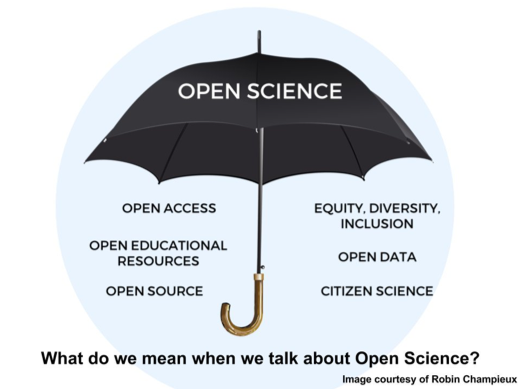This is a website for an H2020 project which concluded in 2019 and established the core elements of EOSC. The project's results now live further in www.eosc-portal.eu and www.egi.eu
This is a website for an H2020 project which concluded in 2019 and established the core elements of EOSC. The project's results now live further in www.eosc-portal.eu and www.egi.eu

Definition: “Open Science represents a new approach to the scientific process based on cooperative work and new ways of diffusing knowledge by using digital technologies and new collaborative tools. The idea captures a systemic change to the way science and research have been carried out for the last fifty years: shifting from the standard practices of publishing research results in scientific publications towards sharing and using all available knowledge at an earlier stage in the research process”. (European Commission, n.d.)

Open Science in the core of Research: Introduction to the fundamentals of the Open Science principles.
TEDxBrussels: Open Science can save the planet: Frontiers’ CEO, Kamila Markram, makes a case for why open science is the key to innovation, economic growth and solutions to a sustainable future.
Use Open Data in Teaching in higher education and research, the topics of open science and research data management have gained interest. This module stimulates the use of open research data in teaching, thus furthering the open science movement.
On 14 December 2018, LIBER recorded a webinar in collaboration with the EOSCpilot project. The goal of the webinar was to connect LIBER’s community with the EOSCpilot project’s work on skills for stewardship in the EOSC context, through roundtable discussion with the LIBER working group on Digital Skills for Library Staff and Researchers.
By default Horizon 2020 projects participate in the Open Research Data Pilot and they must deposit their research data in a research data repository. How to find a suitable repository?
This OpenAIRE and EOSC-hub webinar covers